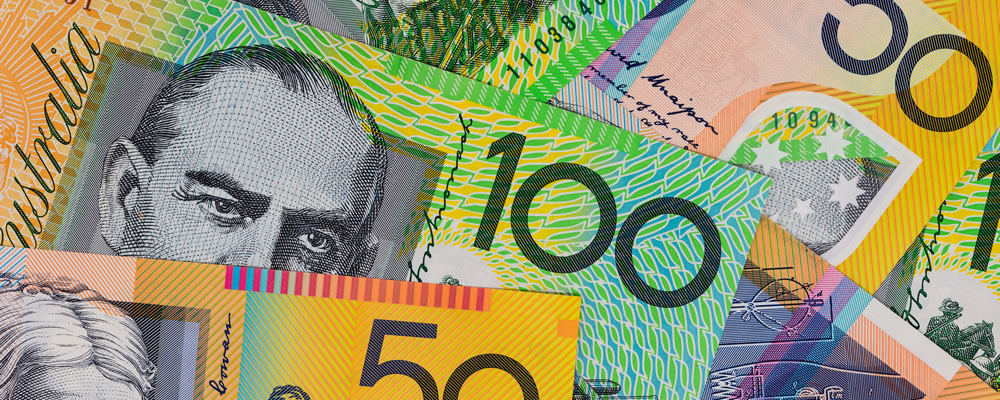- Euro Australian Dollar Exchange Rate Fell Over Weekend –Australian election results offered AUD a boost as Malcolm Turnbull enters office.
- Euro Bolstered Today as Investors skew Bets for Future Depreciation – Net short positions on the currency show a marked increase.
- Australian Dollar Struggles to find favour with Oil Prices dropping below $45 – Commodity-sensitive currency falls after previous strength.
- EUR/AUD Forecast: Rich Week of Eurozone Data set for Pairing rally on Favourable Prints
The Euro Australian Dollar exchange rate has begun to recoup some of the losses sustained over the weekend as the ‘Aussie’ gained support from the eventual declaration of federal election results.
Over eight days of vote-counting and cross-party deliberation finally saw the Liberal party’s Malcolm Turnbull gain the premiership and the Coalition returning to power. Previously investors were shying away from the Australian Dollar as the political situation appeared far from stable.
The EUR/AUD pairing began its slide after a series of disappointing data prints on Wednesday, eventually dropping to its lowest point in at least two months. German retail, construction and factory orders all failed to hit forecasts and Eurozone retail PMI printed decidedly in contraction.
Currently the Euro Australian Dollar exchange rate trades at 1.4621 after rallying over 0.60% during today’s session.
Euro (EUR) Appreciates as Investors Step Up Euro Short Positions amidst Looming Bank Crisis
The single currency has seen a fair rally against most of the majors as its previous weakness was offset by stronger European stocks.
The Euro has also experienced further strengthening today as investors shift their bets to reflect expectations of future devaluation for the currency. Net short exposure of the Euro has risen and in turn the common currency has been boosted.
However, this respite is destined to be brief as growing demand for corporate bonds sees yields drop further, just as the European Central Bank (ECB) steps up its bond-purchasing quantitative easing scheme.
Thriving safe-haven demand is seeing investors flock to these perceived securer assets, in turn, driving the purchasing prices up. The ECB does not welcome these increases as smaller yields hurt the bank’s new scheme as it attempts to prop up the European markets.
Italy’s banking crisis continues to loom and financial experts have been seriously discussing the country’s European Union membership, with some concerned that Italy may not be able to flourish if it remains in the union. This comes off the back of Deutsche Bank’s chief economist David Fokerts-Landau’s call for a €150 billion bailout for Europe’s ‘ill’ banks, he stated that:
‘Europe is seriously ill and needs to address very quickly the existing problems, or face an accident.’
Already, Italian Prime Minister Matteo Renzi has been eyeing a €40 billion bailout for the country’s banks that are currently wrestling with over €200 billion worth of bad debt.
Australian Dollar Settles after Rallying Thanks to Confirmed Election Results
The Australian Dollar has manage to make up for its federal election-related slump, although its gains were capped as oil hit an average of under $45 a barrel.
Rallying Australian stocks and the confirmation of Australia’s Liberal party near-majority sought to ease the ‘Aussie’s’ recent weakness. As Malcolm Turnbull announced his victory, fears for the Australian Dollar’s future subsided due to a number of Australian economists agreeing that the Liberal party are the right choice for the economy.
Data releases for Australia were a mixed bag today. Both medium impact reports; Australian home loans saw a marked decline from 1.7% to -1.0% while investment lending surged printed at 3.9%, up from a -5.0% decline the previous month.
Time will tell whether Malcolm Turnbull’s new government will be able to tackle Australia’s economic worries but already rating agency Moody’s has predicted that the Aussie economy will track in a robust trajectory if the new senate can overcome ideological differences within new government.
Euro Australian Dollar Exchange Rate Forecast for Rally on Strong Eurozone Data Prints
The big ecostats for Australia this week are due for release on Thursday. Both employment change and the unemployment rate will be released and the two reports are forecast for disappointment. Unemployment is expected to rise 0.1% compared to last month. 10,000 positions are believed to have been added in June, down from an employment gain of 17,900 in May.
The less impactful business confidence survey is set for Tuesday. The report has ample potential for currency movement if the print is drastic, but the release will give us insight into the Australian business landscape regardless.
Consumer inflation expectations and full time employment change are the only other medium impact releases for the week but movement is less likely in reaction to these prints with the high impact releases expected on Thursday.
The week has an adequate offering of medium-impact data from Europe.
German inflation data is set for release tomorrow morning. Eurozone industrial production is on the cards on Wednesday and final figures for Eurozone inflation will be released on Friday. Any favourable prints have potential to move the Euro higher in its post-Brexit stupor, however, the looming Italian bank crisis is likely to keep investors weary.
Movement for the Euro Australian Dollar exchange rate could be witnessed after today’s Eurogroup meeting in Brussels. The financial and economic circumstances of post-Brexit Europe is the main item on the agenda. If the meeting exudes a decidedly bearish outlook then we could expect to see EUR/AUD depreciate significantly.



